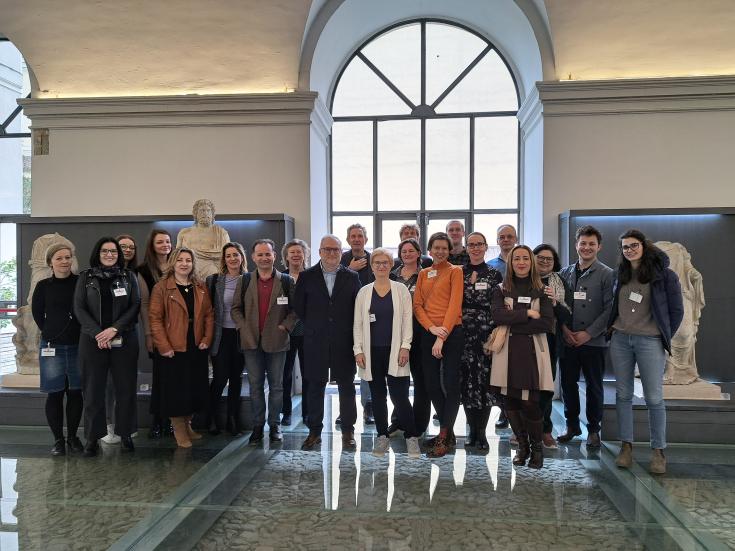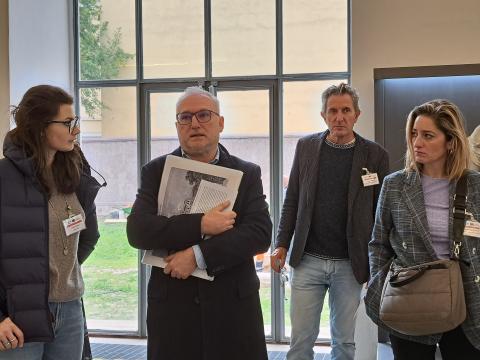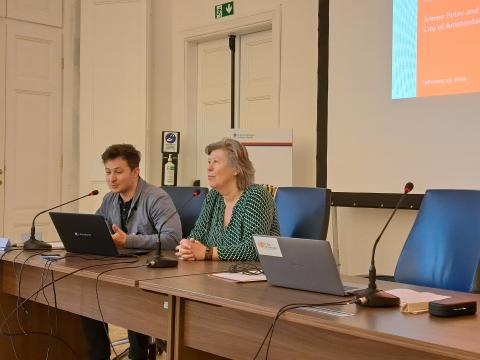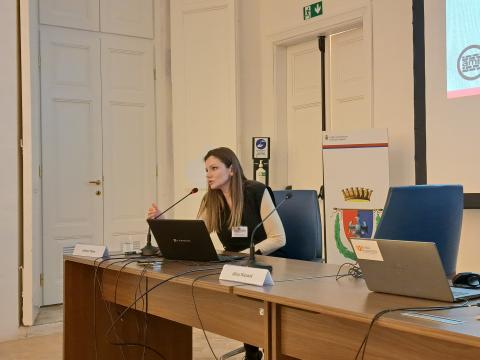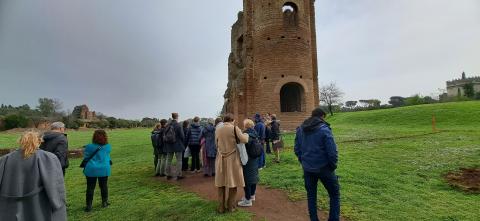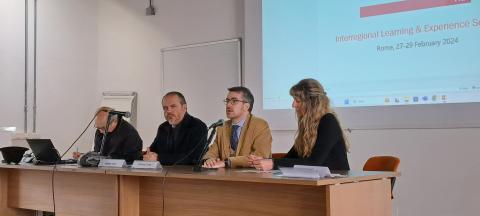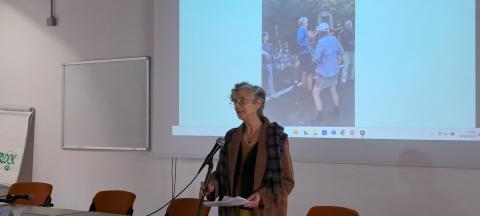Interregional Learning & Experience in Rome
Hosted at the historic Villa Altieri and Ex Cartiera Latina, the event showcased innovative strategies and solutions from diverse partner regions, all geared towards mitigating the adverse effects of overtourism while maximizing the benefits of travel.
Day 1: February 27th, 2024
The inaugural day started with a captivating guided tour of Villa Altieri, led by archaeologist Claudio Noviello. Participants delved into the rich history and cultural significance of the site.
During the peer review session moderated by Eugenio van Maanen from Breda University of Applied Sciences, various innovative approaches to tourism management were showcased.
One notable presentation was by Jelmer Peter and Inez Weyermans of the City of Amsterdam, who introduced the International Alliance for the Protection of UNESCO Sites from Overtourism, emphasising the significance of global collaboration in preserving heritage sites while promoting responsible tourism.
Cătălin Frangulea-Pastor, representing the Association for Sustainable Transportation Brasov, demonstrated the importance of efficient transportation planning at the metropolitan level using Origin-destination Matrices. Additionally, René van Schie from Metropoolregio Amsterdam highlighted the role of Real-time Data Collection through Hotel Management Systems in shaping tourism strategies.
Jose Francisco Benitez Santos, from the Andalucia Ministry of Tourism, Culture, and Sport, underscored the importance of Evidence-based Policies through Effective Data Use, drawing on experiences from Andalusia. Furthermore, Alina Nicoară, representing the Brașov Metropolitan Agency, shared insights on leveraging Geo-marketing data in Touristic Resorts, providing a data-driven approach for tailored destination management strategies.
This interactive exchange of ideas and experiences fostered constructive feedback and refinement, ultimately contributing to the enhancement of approaches in managing tourism effectively.
Day 2: February 28th, 2024
In the morning, we embarked on a captivating site visit to the Ancient Appian Way, where we delved into the significance of this historic route and explored the challenges and opportunities related to its UNESCO nomination. Insights into mobility issues further enhanced our understanding of the area's preservation and accessibility.
The proceedings continued with a welcome from Pierluigi Sanna, Deputy Metropolitan Mayor of Rome, and Stefano Carta, TIB Project Coordinator of the Metropolitan City of Rome. Their opening remarks underscored the commitment of local authorities to sustainable tourism development.
Walter Tocci, former member of the Senate of the Italian Republic, presented ArchaeoMetrebus, an integrated accessibility model for the Imperial Forum Street-Ancient Appian Way mobility system. This innovative framework enhances the accessibility of historical sites while minimising environmental impact.
Architect Maurizio Moretti, showcased BIOVIE, a sustainable mobility model implemented in the Roman Castles. This pioneering initiative emphasizes eco-friendly transportation solutions, ensuring the preservation of natural landscapes and cultural heritage.
Marisa Alberti of the Gruppo dei dodici shed light on the concept of walking paths and slow tourism in the metropolitan area of Rome, advocating for immersive experiences that foster cultural exchange and environmental stewardship.
Elena Colli, from Go-Mobility, offered insights into tourist mobility within the Sustainable Urban Mobility Plan (SUMP) of the Metropolitan City of Rome. By prioritising sustainable transport options, the plan aims to enhance visitor experiences while reducing congestion and pollution.
Day 3: February 29th, 2024
The event concluded with a wrap-up meeting, providing participants with an opportunity to reflect on key learnings and identify areas for future collaboration.
The Interregional Learning & Experience Sessions in Rome served as a testament to the power of collaboration in addressing the complexities of tourism management. By sharing knowledge, exchanging best practices, and fostering innovation, participants reaffirmed their collective commitment to building a more sustainable and inclusive tourism industry.

